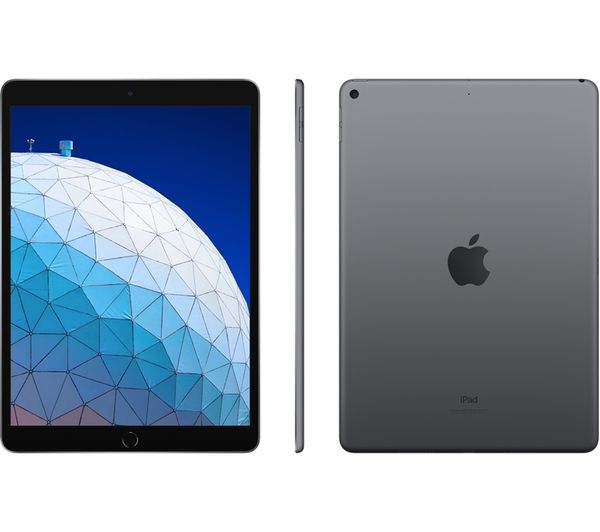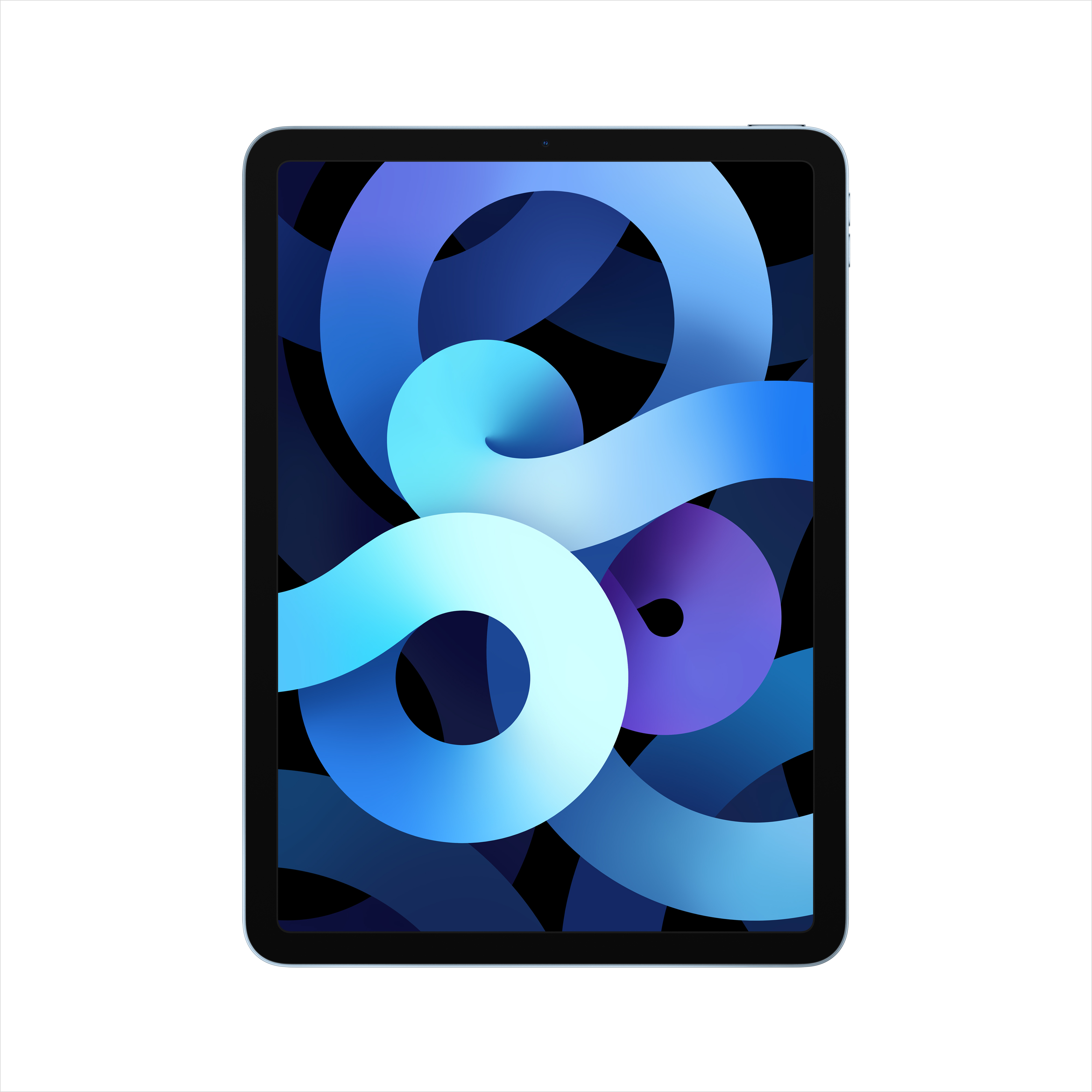APPLE 10.5″ iPad Air (2019) – 64 GB, Space Grey
iOS 12. Retina display. Battery life: Up to 10 hours. AirPlay. Compatible with Apple Pencil (1st generation).
Make notes and sketches
The Apple 10.5” iPad Air brings you everything you love about the iPad, just in a super-thin and lightweight design. Built so that you can work on projects and get things done, wherever you are, you can use an Apple Pencil with the iPad Air, as well as a Smart Keyboard (both sold separately).
So you’ll be able to type up an email just like on a laptop with the keyboard, or doodle on your notes and add sketches with the Pencil.
Upgraded FaceTime camera
The iPad Air also has an upgraded front camera. You’ll be able to take better selfies, and your video quality on group FaceTime calls will be better than ever. No more having to find good light.
And let’s not forget the 10.5” Retina Display. It makes colour look just like it does in real life, so every photo, video and game looks bright and vivid. The screen is also really bright (when you want to turn the brightness setting all the way up) so you can use your iPad Air outside without worrying about direct sunlight.
Impressive speed and power
Powered by Apple’s A12 Bionic chip, the iPad Air is able to learn from experience, so it will get to know how you use your apps, to make your experience even smoother. You’ve also got the power to use loads of programs at once, so you can edit a video, then add it to your presentation in moments.
And thanks to iOS 12, you can use two apps at once on the same screen, drag and drop files, and loads more.
All-day battery
After a whole day of editing images, working with videos and catching up Netflix documentaries, you won’t have to run to your charger. Even if you use it non-stop, the iPad Air has 10 hours of battery life.
Additional information
| Type | 10.5" iPad Air |
|---|---|
| Operating system | iOS 12 |
| Processor | – A12 Bionic Chip Processor |
| Storage | 64 GB eMMC |
| Touchscreen | Yes |
| Screen size | 10.5" |
| Screen type | Retina Display |
| Resolution | 2224 x 1668 |
| Screen features | – LED backlighting |






by Mike
Light design.
by Sonia
Easy to use.
by Lizi
This is my 3rd IPad I live working with Apple .
by Chris
Slim and lightweight.